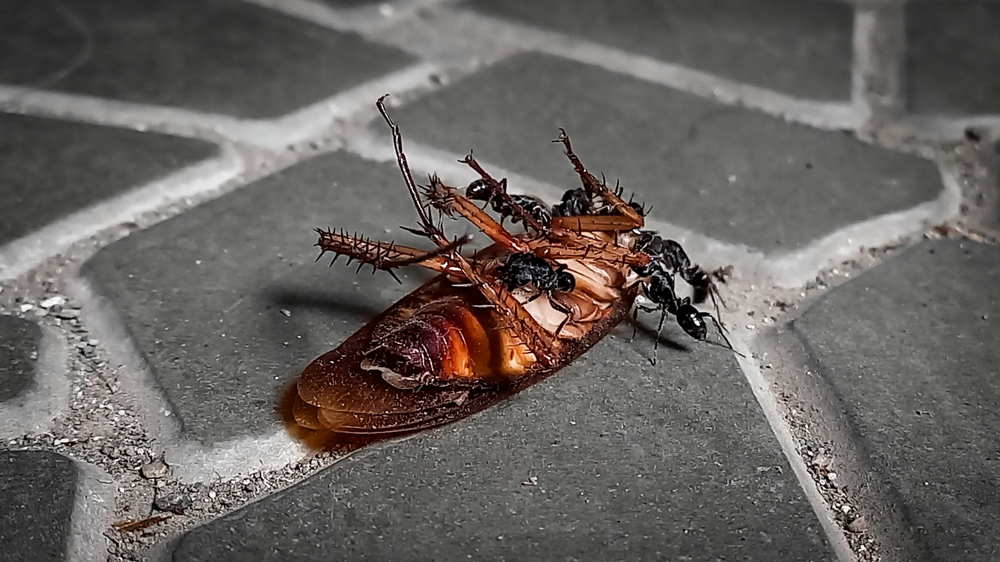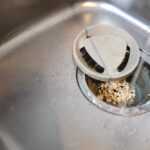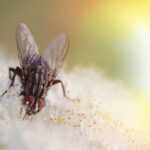How Long Do Roaches Live? Lifespan Explained
Ever wondered how long roaches live? Learn about the cockroach lifespan, survival habits, and why they thrive in homes if left untreated.
Roach Lifespan: How Long Do Roaches Live and Why?
Wondering how long roaches live? Cockroaches typically have a lifespan of up to a year, though this can vary by species and conditions. In this article, we’ll detail the life spans of various cockroach species, what influences their survival, and how to control them effectively.
- Cockroach lifespans vary by species, with some living up to a year, while others can last only a month under certain conditions.
- Environmental factors like temperature, humidity, and food availability significantly impact how long cockroaches can survive.
- Preventing infestations involves maintaining cleanliness, sealing entry points, and understanding where different species lay their eggs.
Lifespan of Different Cockroach Species
Cockroaches are known for their resilience and adaptability, but did you know that their lifespans can vary significantly depending on the species? On average, cockroaches live about one year, but this can range from a mere month to over 200 days, depending on environmental conditions and the specific species.
German cockroaches, for instance, have a lifespan that can extend beyond 200 days under optimal conditions. These pests are often found in kitchens and bathrooms, where warmth and moisture are abundant. On the other hand, the American cockroach, which is the largest common house-infesting roach, typically survives for up to one year, and many wonder how long a German cockroach lives in such environments.
Oriental cockroaches, which prefer cooler and damp environments, can live between 34 to 180 days. Meanwhile, the brown-banded cockroach has a shorter lifespan of about 80 days, especially in warmer conditions.
These variations in lifespan among different cockroach species highlight the importance of identifying the specific type of roach you are dealing with. This knowledge can help tailor your pest control strategies more effectively, ensuring that you address the root of your cockroach problem and not just the symptoms.
Factors Affecting Roach Lifespan
The lifespan of a cockroach is influenced by several environmental factors that can either shorten or extend its life. Temperature and humidity are two of the most critical factors. Cockroaches thrive in warm, humid environments, which accelerate their growth and development. High humidity levels are particularly crucial as these insects need moisture to survive.
Food availability also plays a significant role. Cockroaches can survive for up to a month without food, but they can extend their lifespan by scavenging alternative food sources like soap and adhesive residues. Cleanliness is another crucial factor; dirty environments provide ample food sources, allowing roaches to thrive. Conversely, extreme conditions such as high temperatures or a lack of resources can significantly reduce their lifespan.
The stability and protection of their habitat are equally important. Cockroaches prefer environments that offer protection from predators and harsh conditions. Thus, a cluttered home with plenty of hiding spots can become a haven for these pests. Understanding these factors can help you take preventive measures to make your home less inviting for cockroaches.
Life Cycle of a Cockroach
The life cycle of a cockroach is a fascinating process that involves three distinct stages: egg, nymph stage, and adult. This cycle begins when a female cockroach lays her eggs, which are protected by an egg casing. This casing serves as a shield, protecting the eggs from environmental threats and predators.
After approximately six to eight weeks, the eggs hatch, and nymphs emerge. These nymphs are miniature versions of adult cockroaches but lack fully developed wings and reproductive organs. Over the next six to twelve months, the nymphs undergo a series of molts, shedding their exoskeletons to grow. This process continues until they reach adulthood, a stage that typically takes around 600 days to complete.
The duration of each stage in the cockroach life cycle can vary based on environmental conditions and the specific species. Knowing this life cycle aids in effective pest control by targeting the most vulnerable stages of their development.
How Long Can Roaches Live Without Food?
Cockroaches are remarkably resilient creatures, especially when it comes to food scarcity. These cold-blooded insects can survive up to a month without food, thanks to their cold-blooded nature, which allows them to conserve energy more efficiently. This resilience is one of the reasons why cockroach infestations can be so challenging to control.
In the absence of their preferred food sources, cockroaches eat alternative food sources such as soap, adhesive residues, pet food, and even other cockroaches. This adaptability allows them to survive in environments where food is scarce. However, this doesn’t mean they can thrive indefinitely without food. Their health and reproductive capabilities are significantly affected by prolonged periods without proper food source.
Knowing how long cockroaches can survive without food aids in developing effective pest control strategies. By eliminating food sources and maintaining a clean environment, you can make your home less hospitable for these pests, thereby reducing their population and preventing infestations.
How Long Can Roaches Live Without Water?
While cockroaches can go without food for extended periods, their need for water is far more immediate. These insects can only survive for about a week without water. Water is essential for their survival, influencing their health, reproductive capacity, and overall lifespan.
Access to water significantly impacts cockroach survival. In environments where water is scarce, cockroach populations can decline rapidly. Fixing plumbing leaks and eliminating moisture sources in your home are key steps in pest control. By doing so, you can make your home less inviting to these resilient pests and help prevent infestations.
Where Do Cockroaches Lay Eggs?
Cockroaches are strategic about where they lay their eggs, choosing warm, dark, and moist areas that provide the best chances for their offspring’s survival. These locations are typically hidden from plain sight, making it challenging to detect and eliminate cockroach eggs.
German cockroaches, for example, often place their egg cases in kitchen crevices, taking advantage of the warmth and availability of food. American cockroaches prefer damp locations like basements, where the environment is more humid. Brown-banded cockroaches, on the other hand, opt for elevated, warm locations such as ceilings and behind wall hangings. Oriental cockroaches favor cooler, damp environments like basements or areas near decaying organic matter.
Knowing where different cockroach species lay their eggs helps in identifying and targeting these hidden spots, enhancing pest control efforts. Regular inspections and targeted treatments can help prevent a cockroach infestation from taking root in your home.
Preventing a Cockroach Infestation
Preventing a cockroach infestation requires a proactive approach focused on cleanliness and maintenance to prevent cockroaches. Regularly empty trash cans and use tightly sealed containers to store food to deny cockroaches easy access to food sources. Fixing plumbing leaks promptly can eliminate sources of moisture that cockroaches need to survive.
Removing clutter from areas like kitchens and basements reduces hiding spots for cockroaches. Sealing entry points with caulk and mesh can also help keep these pests from entering your home. These preventative measures, when combined, create a hostile environment for cockroaches, making it less likely for them to establish a presence in your home.
Vigilance and consistency with these measures are vital. Regular maintenance and prompt attention to potential cockroach hiding spots can significantly help in preventing an infestation.
Health Risks Associated with Cockroaches
Cockroaches are more than just a nuisance; they pose significant health risks. These pests are known carriers of diseases, including food poisoning and other bacterial infections. Their presence in your home can lead to severe health issues, particularly for individuals with asthma and allergies.
The saliva, droppings, and shed body parts of cockroaches can provoke allergic reactions and asthma symptoms. In urban environments, a significant portion of homes—between 78% and 98%—contain allergens from cockroaches. This widespread presence of allergens underscores the importance of effective pest control measures to protect your family’s health.
Awareness of these health risks can motivate action against cockroach infestations. Maintaining a clean home and implementing effective pest control strategies can reduce exposure to harmful allergens and diseases.
Best Practices for Cockroach Control
Effective cockroach control begins with identifying the specific species. This knowledge is crucial for determining the most effective treatment methods. Once identified, locating and eliminating cockroach harborage areas and food sources is essential.
Chemical baits are highly effective for the quick elimination of roaches and should be placed near their hiding spots. Insect growth regulators can also be used to prevent cockroach reproduction and control their populations. For severe infestations, professional pest management services are often necessary.
Investing in professional pest control services can provide peace of mind, knowing that a pest control professional is handling the situation. With their help, you can keep your home cockroach-free and protect your family’s health.
Understanding the lifespan and habits of different cockroach species is crucial for effective pest control. Cockroaches are resilient creatures that can survive in diverse environments, but by knowing their weaknesses, you can develop strategies to keep them at bay. Regular maintenance, cleanliness, and professional pest control services are key to preventing and managing cockroach infestations.
Frequently Asked Questions
How long do cockroaches typically live?
Cockroaches typically live around one year, although their lifespan can vary depending on the species and the environment.
What factors affect the lifespan of a cockroach?
The lifespan of a cockroach is mainly affected by temperature, humidity, food availability, cleanliness, and the stability of their habitat. Keeping these factors in check can help manage cockroach populations effectively.
How long can cockroaches survive without food or water?
Cockroaches can tough it out for about a month without food and up to a week without water. So, if you ever spot one, know they can go quite a while without a meal!
Where do cockroaches lay their eggs?
Cockroaches typically lay their eggs in warm, dark, and moist areas where they can be well concealed. So, keep an eye on those hidden spots in your home!
What are the best practices for cockroach control?
To effectively control cockroaches, identify the species, eliminate food sources and hiding spots, and consider using chemical baits. For severe infestations, don’t hesitate to call in professional pest control for help.



